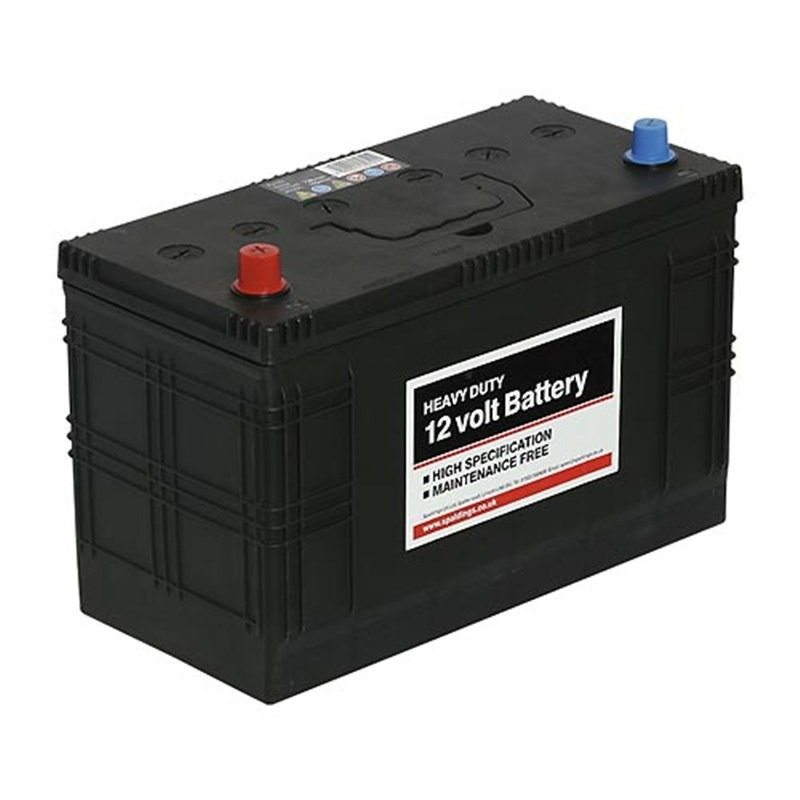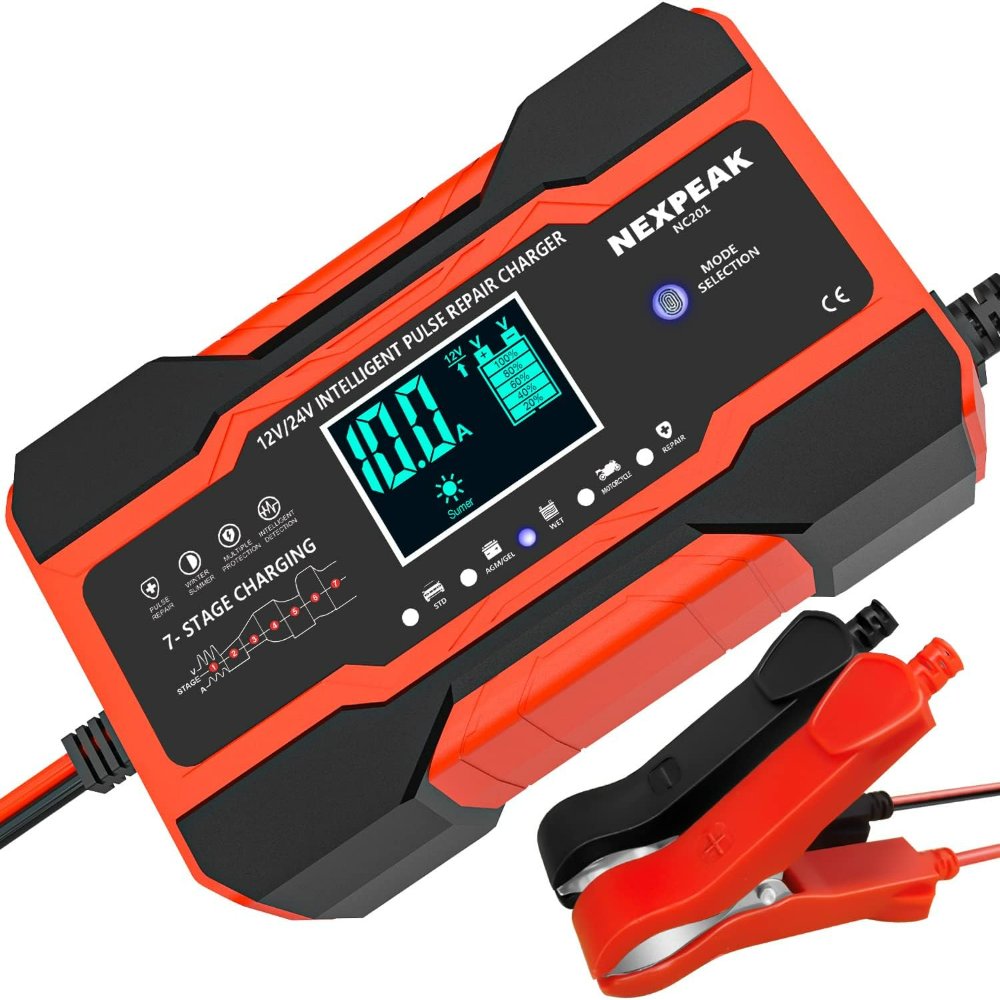The Importance of Car Battery Size
Proper car battery size is crucial for vehicle efficiency and performance. The size directly influences the vehicle’s ability to start and its power capacity. An incorrectly sized battery can lead to various problems including poor vehicle performance and potential damage.
Factors Affected by Car Battery Size
Various elements of the vehicle’s functionality hinge on the proper battery size:
- Engine Performance: The right battery size ensures enough power for the engine start-up.
- Accessory Operation: It powers accessories like lights, stereo, etc., effectively.
- Battery Lifespan: An aptly sized battery undergoes less strain, extending its life.
- Vehicle Safety: Enhances safety by reducing the likelihood of battery-related failures.

Impact of Battery Size on Vehicle Performance
Choosing the right battery size plays a vital role in vehicle performance:
- Startup: A correct-sized battery provides adequate power for easy engine starts.
- Power Supply: It supports all electrical demands without overloading the system.
- Operational Costs: Ensures efficient energy use, lowering possible maintenance costs.
From starting the car to ensuring all electronics run smoothly, the car battery size is key. It’s vital to select the correct battery size to avoid the inconvenience and costs of frequent replacements.
Understanding Car Battery Specifications
When purchasing a car battery, understanding its specifications is crucial. These specs reveal the battery’s capacity, performance, and compatibility with your vehicle. Below, we break down some of the key terms and standards you should know.
Key Specification Terms and Their Meanings
- Cold Cranking Amps (CCA) – This indicates a battery’s ability to start an engine in cold temperatures.
- Reserve Capacity (RC) – Time (in minutes) a fully charged battery can discharge at 25 amps before voltage falls below 10.5 volts.
- Ampere-hour (Ah) – Represents the total charge a battery can deliver in one hour.
Understanding these terms helps you compare batteries accurately and choose the right one for your car.
The Role of International Electromechanical Commission (IEC) Standards
The IEC sets global standards for sizes and types of batteries. These standards ensure uniformity and reliability in battery performance. Knowing the IEC designation helps you find batteries that meet these international criteria. Although not always listed on battery labels, these standards guide manufacturers in creating consistent products.
Matching Battery Size to Engine and Power Requirements
Ensuring your car has the right battery size is crucial for optimal performance. The engine size and power requirements heavily influence the necessary battery size. Let’s dive into how these factors interact.

The Relationship Between Engine Size and Battery Power
A car’s engine size dictates the battery power needed. Larger engines require batteries with higher capacities to start effectively. If the battery size is too small, the car may struggle to start, especially in cold weather. Conversely, batteries that are too large for the engine might not only waste energy but also cause undue strain. It is essential to match the battery power directly to the engine size for efficient functioning.
Electrical Accessories and Their Influence on Battery Choice
Today’s vehicles come with various electrical accessories that affect battery size choice. Accessories like stereo systems, navigation devices, and air conditioners increase the battery’s power demand, particularly when the engine is off. Choosing a battery that can comfortably handle these extra loads is important for maintaining both battery life and vehicle performance. Understanding the combined power requirements of all vehicle accessories will guide you in selecting the appropriate battery size.
The Consequences of Incorrect Battery Size
Selecting the incorrect battery size can lead to severe consequences. Understand the benefits and drawbacks to make an informed choice.
Benefits of Choosing the Right Size Battery
Selecting the correct battery size has many advantages. Here are a few to consider:
- Reliable Performance: A suitable battery ensures your car starts and runs well.
- Longevity: The right fit reduces battery wear and extends its life.
- Safety: The correct size minimizes the risk of electrical issues.
- Cost Efficiency: You avoid additional costs from early replacements.
Careful selection ensures your car operates optimally, saving you time and money.
Drawbacks of a Battery That’s Too Big or Too Small
A wrong sized battery is problematic. Here are some issues that may arise:
- Poor Fit: A battery too large may not fit, causing damage.
- Insufficient Power: Too small, it may not meet your car’s demands.
- Strain on Vehicle: Incorrect size can strain the car’s electrical system.
- Reduced Lifespan: The wrong size can shorten the battery’s life.
To prevent such issues, always choose a battery tailored to your car’s requirements.

Climate and Driving Habits: Additional Considerations
When selecting a car battery, consider the climate and your driving habits.
How Weather Affects Battery Performance
Weather conditions greatly influence battery performance. Cold weather demands more power to start the engine, thus requiring a more robust battery. In contrast, high temperatures can accelerate battery corrosion and reduce its lifespan. Drivers in extreme climates should opt for batteries designed to withstand these conditions.
The Impact of Driving Patterns on Battery Life
Your driving habits also affect the battery’s endurance. Frequent short trips prevent the battery from fully charging, leading to faster degradation. Conversely, regular, longer trips allow the battery to charge properly, prolonging its life. It’s vital to choose a battery that suits your typical driving patterns to ensure reliability and longevity.
Choosing the Right Car Battery Size
Selecting the right car battery size is crucial for optimal vehicle performance. The proper size ensures the battery can handle the vehicle’s power requirements effectively, without causing strain or inefficiency. Missteps in size selection can lead to frequent replacements, decreased vehicle performance, and higher operational costs. Here are some guiding steps and tips for selecting the best size for your vehicle.
Steps to Determine the Proper Battery Size for Your Vehicle
- Consult the Owner’s Manual: Start with your vehicle’s manual, which specifies the necessary battery size.
- Check Existing Battery Specs: Inspect the current battery for specifications like group size and dimensions.
- Assess Power Requirements: Consider your vehicle’s engine size and electrical accessories that require power.
- Factor In Climate: Ensure the size can withstand the climate conditions it will face.
Understanding these elements helps you pick a battery that matches your car’s specific needs.
Tips for Comparing Different Battery Brands and Specifications
- Review Cold Cranking Amps (CCA): Higher CCA values indicate better cold-weather performance.
- Compare Reserve Capacity (RC): Higher RC numbers mean the battery can run longer when the engine shuts off.
- Check Ampere-hour (Ah): This measures the battery’s charge capacity, suitable for your car’s power demand.
- Research Warranty and Costs: Balance between the initial cost and the warranty offered.
- Consult Experts: Get advice from mechanics or battery specialists, especially for unique car models.
These tips assist in evaluating and selecting a battery that offers reliability, longevity, and effectiveness. Make sure to match the battery with your car’s requirements to enhance performance and avoid potential issues.
Professional Guidance and Installation
Choosing the right car battery size might seem straightforward, but it can be complex. Professional guidance is often necessary to get it right. Especially for those unfamiliar with auto mechanical details, consulting an expert can be invaluable. Experts ensure you select a battery that matches your car’s needs perfectly, avoiding common pitfalls.
When to Consult an Expert
You should consult an expert when you are unsure of the specifications required for your vehicle. This is crucial if:
- You’re Replacing an Old Battery: An expert can confirm the right type that fits your car.
- You Have Enhanced Power Requirements: If you’ve added accessories or have special needs, expert advice will help.
- There are Symptoms of Battery Failure: Experts can diagnose if the issue is indeed the size or another battery problem.
- Purchasing a Used Car: To ensure the existing battery is adequate for the car.
An expert not only helps in selecting the right battery but can also provide tips on its maintenance.
Importance of Professional Installation
Installing a car battery might look simple, but incorrect installation can lead to serious issues. Here’s why professional installation is important:
- Safety: Car batteries are heavy and contain harmful chemicals. Professionals know how to handle them safely.
- Correct Installation: Experts ensure that the battery fits securely and all connections are correct, protecting your car’s electrical system.
- Longevity and Efficiency: Proper installation maximizes battery life and efficiency.
- Warranty Compliance: Some warranties require professional installation for validity.
By ensuring your car’s battery is professionally installed, you secure its functionality and your safety.